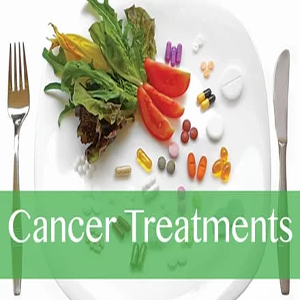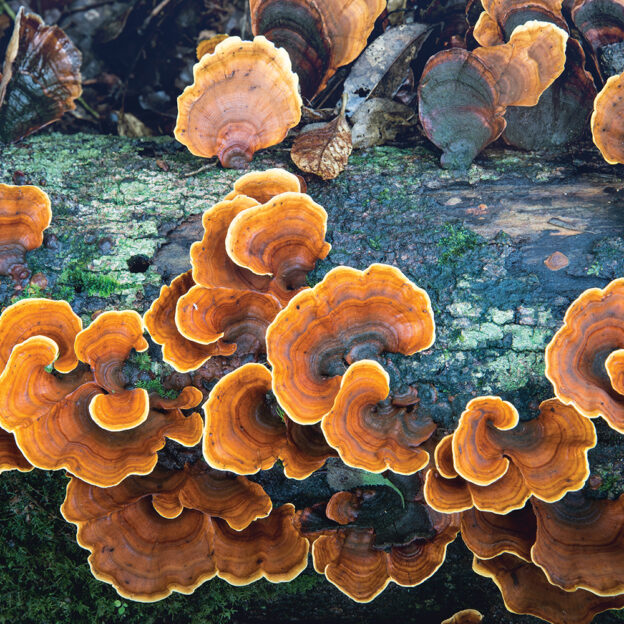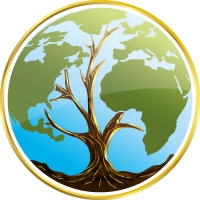By Scott Miners.

Can healing happen in a natural way? With colon cancer at age sixty, Kenneth Forror’s oncologist told him that he would probably only live one more year, provided he started with chemotherapy or radiation immediately. That was in 1975. Although Forror, a surgeon, routinely recommended chemotherapy to other patients, he refused the treatment himself.
At age eighty-three, many years after he retired from his medical practice, he was still cancer free. Forror had chosen, instead of chemotherapy, to change his diet to natural, whole foods. He started drinking large amounts of vegetable juices, and began following the Virginia Livingston program of natural healing. Livingston was an American physician and cancer researcher (1906-1990). Forror later became the Livingston Center’s medical director in San Diego.
His wife asked him when his oncologist first gave him the cancer diagnosis, and Forror refused chemotherapy, why he did so. “Because,” he replied, “I am the patient now, and I don’t have to follow that routine. It never did that much good. I had to keep prescribing it to keep my hospital privileges.”1
To this day, many physicians find they have to recommend chemotherapy to their patients, although, as cancer researcher Ralph Moss, PhD, notes, amongst themselves, they acknowledge that these treatments don’t work for the majority of cancers.
Candace Pert, PhD, a leader in neurological and biological sciences, questioned the focus in mainstream medicine on drugs and surgery rather than natural methods of healing. She stated, “It has to do with money and power. A lot of what is done in medicine has not been proven by science, but it’s economically supported…. This applies to cancer drugs too.”2
Robert Willix, Jr., MD, agrees: “If you go to a cancer specialist, you are likely to go through chemotherapy—a treatment that only cures about three percent of patients and has no proven influence on the length and quality of life. As many as seventy-five percent of cancer patients undergo chemotherapy—even though their oncologists are aware that it’s not only ineffective but also highly toxic. Furthermore, a survey in Canada found that seventy-five percent of oncologists would not undergo chemotherapy or recommend it to a loved one.”3
A pharmaceutical company or other business venture cannot patent an herb or a nutrient that occurs naturally, so there is little financial interest or return, if any, in promoting these things to hospitals, physicians, medical schools, or the general public—even if the evidence is clear that phytonutrients and other health restoring treatments are not only more effective than chemotherapy drugs for most cancers but are far less expensive and non-toxic.
Natural Medical Methods Return
Over fifteen years ago the second annual complementary and alternative medicine cancer conference, “Comprehensive Cancer Care: Integrating Complementary & Alternative Therapies,” was held in Arlington, VA. It was sponsored by The University of Texas, Houston Medical School, as well as physician James Gordon’s Center for Mind-Body Medicine, the National Center for Complementary and Alternative Medicine at the National Institute of Health (NIH) and the National Cancer Institute. The program included in-depth presentations on research focused on complementary and alternative treatments.
One of the presenters, Mary Ann Richardson, PhD, program director of the University of Texas Center for Alternative Medicine Research, commented, “It’s time we begin to look at these things. There clearly is an interest not only amongst the oncology community to move forward with research investigations, but also a general desire among practitioners to find out what’s going on in terms of evaluating [alternative therapies].”
Notwithstanding advances in medicine, there are still closed doors in the hallways of the health industry. We encourage you to look for the open doors. Even if those limited in view to the conventional treatments (chemotherapy, radiation, and surgery) have said there are no other treatments or cures, there are many—not only more effective, but also time-tested, non-toxic, natural treatments—and a plethora of success stories.
Physicians Barred
State Medical Boards have taken licenses from physicians such as Glenn Warner, MD, of Seattle who was successfully treating cancer patients with immunotherapy and certain nutrients. This limitation of physicians to conventional oncology (chemotherapy, radiation) is a result of medical practice laws that were put into effect many years ago. Those laws derive from old American Medical Association interests and are related to “the conventional cancer industry.” (For more on that subject see the excellent book by Harris Coulter, PhD, Divided Legacy.)
The Well Being Journal received a letter from a physician who mentioned that the Federation of State Medical Boards (FSMBs) wants to “eliminate questionable health care practices.” He was referring to what has been called “alternative treatments” or “complementary medicine.” Perhaps in the future the FSMBs will look at a more questionable practice: chemotherapy.
Chemotherapy Questioned
Among others, Ralph Moss, PhD, a leading researcher in the field of both conventional and complementary or alternative medicine treatments for cancer, states that for the vast majority of cancer cases, there is no proof that chemotherapy extends life. For a minority of tumors—Hodgkin’s, lymphomas, and testicular cancer being the main examples—chemotherapy does extend life, but for the majority of cancers it does not. In fact, when Moss suggested to an oncologist (who had previously criticized Moss’s work) that chemotherapy of solid tumors, especially in disseminated disease, shows no proof of working, the oncologist replied by stating: “I’d go further than that. I’d say that there is proof—proof that it doesn’t work.”
To access the full article above purchase Vol. 23, No. 5, September/October 2014 (available in print or digital format) of Well Being Journal.





